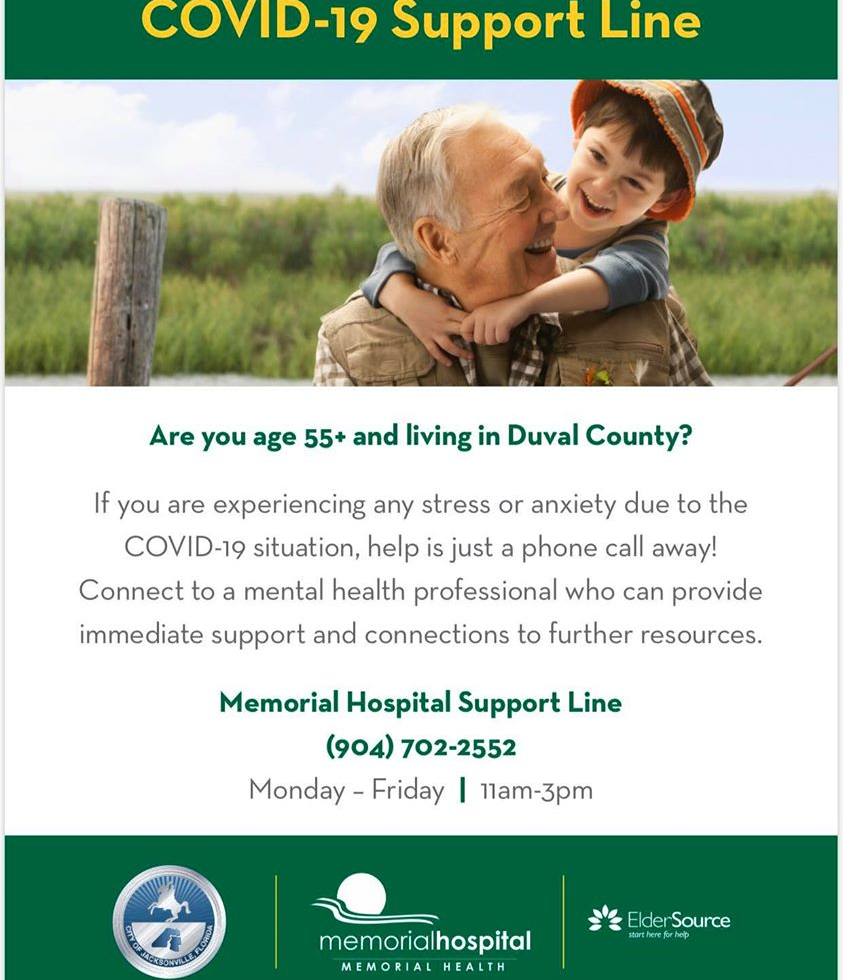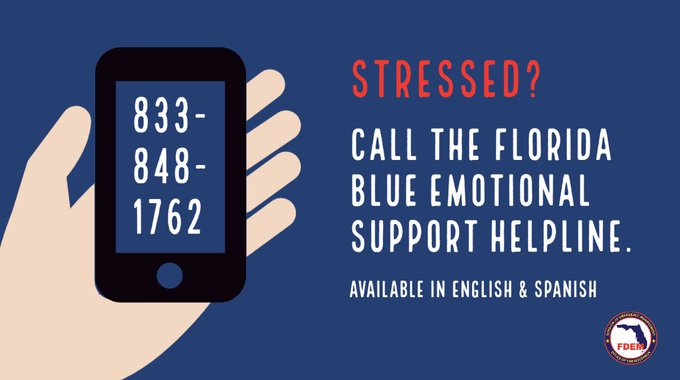Emotional Support and Coping Strategies During Coronavirus
- Kandise Chrestensen

- Apr 15, 2020
- 4 min read
You’re not alone if you’re experiencing the fear and anxiety brought on by the novel Coronavirus, and the recommended social distancing and isolation may add to the stress of trying to maintain some semblance of balance within your life. That’s okay, it’s a normal response to these events. We are all adjusting to new routines, whether working from home or finding ourselves hyper-diligent about hygiene routines while still working. Caregivers especially are facing a new challenge in preserving their own health as well as that of their loved ones while juggling work commitments and other responsibilities.
You may feel increased irritation, changes in energy levels, sadness, anger or frustration at the changing circumstances, and guilt for being unable to perform in each role as you would like to. Here are some tips and resources that could bring moments of peace and relief in an otherwise hectic world.
1) Limit your media consumption. Social media, local and national news are all saturated with information that may be discouraging, conflicting, or exaggerated. It’s important to stay informed, so try limiting yourself to 10-15 minute-increments to reduce frustration and anxiety around the crisis.
2) Listen to your body. Pay attention to your body and take care of it in ways that work for you. For some, this may mean home-workouts and healthy meals; for others a walk or bike ride around the neighborhood is enough to wake up their muscles and clear their mind. Scheduling moments throughout your day to stretch and breathe mindfully can divert your focus from your to-do list. Try not to overeat or skip meals. Remember that taking care of yourself means putting healthy and good things into your body. It’s a good time to pay attention to what you eat and stay hydrated.
3) Establish your routine and stick to it. Try going to bed at the same time every night and waking up at the same time every morning. Set aside time to accomplish household chores, like laundry or dishes. You can modify these chores to incorporate family. These types of activities can give older adults a sense of purpose and accomplishment. If you’re working from home, make sure you take breaks to step away from your phone or computer and get some fresh air, read a book, or go on a walk.
4) Stay connected. Staying connected with friends and loved ones can combat the feelings of isolation and loneliness. If your loved one is in a nursing home or senior living community, work with the staff to see how you can continue to communicate. Many facilities are incorporating more phone calls or even video-chats to engage their residents with family. It’s also important to call friends and family and check in about things that are unrelated to the outbreak. This can be an opportunity to share the accomplishments of your day or something you’re grateful for.
5) Lower your expectations. Lately we have been bombarded with instructions, guidelines, and recommendations that alter our routine both inside and outside the home. As a caregiver, it can be difficult not to feel guilty for being less productive. In the face of uncertainty we instinctively want to grasp onto what was “normal” about our routine like our daily to-do list or running errands, but right now it may not be safe or realistic to do all of these things. Decide what is priority and accept that not everything needs to be done today. It’s more important to have time to yourself, spend quality time with loved ones, and focus on activities that bring you a sense of purpose and gratification.
If you find yourself overwhelmed with what’s going on, there are resources that offer support. Whether you need financial assistance, professional advice on handling a difficult behavior, or just a listening ear, these resources can help.
ElderSource Aging and Disability Resource Center HelpLine: Call the HelpLine to find resources and support in your area. ElderSource Staff can connect you with nutrition and meal services, financial assistance, in-home services and more. The HelpLine is open Monday-Friday 8am to 5pm.
Call 904-391-6699 or toll-free at 1-888-242-4464.
The Alzheimer's Association 24/7 HelpLine: This HelpLine is staffed 24/7 with Master's level clinicians and experts available to answer questions, find resources, and offer support to those caring for someone with dementia. The Alzheimer's Association is also offering their support groups virtually, call the HelpLine for more information.
1-800-272-3900 or chat with a professional online at alz.org
Memorial Hospital Support Line: If you're over 55+ living in Duval County and are experiencing any stress or anxiety due to COVID-19, connect with a mental health professional who can provide immediate support and connection to further resources. The support line is open Monday-Friday 11am-3pm.
904-702-2552
Florida Blue 24/7 Emotional Support HelpLine: The toll-free helpline connects individuals with specially trained bilingual behavioral health counselors who can assist anyone experiencing feelings of stress, anxiety, trauma and grief due to the health crisis. This service is free to all Florida residents regardless of insurance coverage or health care providers.
833-848-1762
Aging True Senior Services Virtual Mental Health Counseling: Seniors 60+ and their caregivers can receive face-to-face counseling services through Telehealth. Services include community referrals, access to necessary support systems, education on mental health symptoms, coping-skill training, and individual counseling.
For more information or to set up an assessment, call 904-807-1243.
Sources:
Johns Hopkins University Managing and Understanding Mental Health Concerns During the COVID-19 Pandemic
National Suicide Prevention Lifeline Emotional Wellbeing During the COVID-19 Outbreak
Centers for Disease Control Stress and Coping
Greater Good Magazine Three Tips from a Therapist for Calming Your Coronavirus Anxiety












Comments